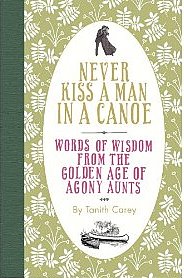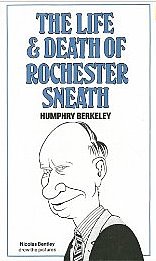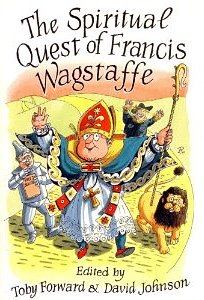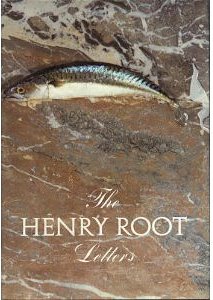
photo by Christa Van Gend
the hoax letter as short story
by John Saunders
For Jonty Driver
The essence of the form which I will be exploring is as old as the hills. The questor (A) poses a question (B) to an ‘authority’ (C) and receives an answer (D). The outcome (E) may or may not be known. The world watches, and as the form develops more and more ‘readers’ come to realise that any of A, B, C and D may not be genuine.
The earliest recorded examples relate to the advice given by the oracle at Delphi. Who here was the authority? Was it Apollo, or his priestess Pythia, or the priests who controlled the finances? (The oracle was a big earner). Many of the recorded answers are enigmatic, the questor choosing to interpret them in a way which suited his character. And many of the known endings are tragi-comic little tales which have been passed on down the centuries. Consider the story of the legendary Croesus. Croesus consulted the oracle for advice concerning his planned campaign against the Persian Empire. The oracle prophesied that if Croesus attacked the Persians a great empire would be destroyed. This answer suited Croesus, who took heart and invaded – and his own empire was destroyed. But not just great kings consulted the oracle. ‘Ordinary’ men (though not women) made visits too, asking the oracle for advice concerning domestic issues. Looking back at the Oracle it is tempting to see the priestess as a giant spider, at the centre of a web of myths and legends, who trapped the unwary into her clutches – often destroying them.
The Delphic Oracle might be seen as the forerunner of the English agony aunt (and uncle), whose birth is now generally traced back to the publication of the Athenian Gazette, soon to be renamed as the Athenian Mercury. The Gazette was the brainchild of a journalist and bookseller, John Dunston, an habitual adulterer who, experiencing the need to discuss his little weakness with an impersonal adviser, realised that an impersonal form of question and answer might prove to be financially lucrative. The Athenian Gazette was first published in 1691. Initially Dunston relied on a small team of relatives and friends who undertook the task of answering questions on a range of topics: divinity, history, philosophy, mathematics, poetry and love. Sometimes – in order to sustain interest – the team also wrote the questions. Soon, personal emotional issues began to dominate and the advisers were increased to include that legendary literary hoaxer Daniel Defoe. Some of the advice offered by the Gazette now seems refreshingly lacking in the primness shown by many later uncles and aunts. When a woman (perhaps) wrote in to ask what to do about her fears concerning the loneliness of old age, she was advised to go down to the docks and find herself a sailor.
On discovering that the Q and A form appealed to women in particular, Dunston then launched the Ladies Mercury – a self-proclaimed women’s journal produced by men. Both journals sold well and soon other publications like the The Old Maid and the Female Spectator followed. The latter’s first agony aunt, Eliza Haywood, was no paragon of virtue – having had several affairs and several children by a range of admirers. But she took firm positions on public issues such as marriage, education and conduct. Her replies to letters were written under four nom-de-plumes – Mira, Euphrosine, Widow of Quality and – The Female Spectator.
But it was the Victorian era which introduced the great age of the English agony aunt and their
answers tended to deal out the shallow moral certainties which were the public face of the age. Tanith Carey’s recent book – Never Kiss a Man in a Canoe: Words of Wisdom from the Golden Age of Agony Aunts (Boxtree, 2009) – consists of a wide range of advice offered from aunts (and uncles) working for a wide range of publications including The Ladies Treasury, Every Girl’s Paper, Honey, Forget-Me-Not, Betty’s Weekly; The Girls’ Best Friend; Chic; Tit-Bits; Ally Sloper’s Half Holiday; and Punch. Punch fits uneasily into Tanith Carey’s essentially anecdotal tit bits of ‘advice’ and it almost seems as though she, in researching her book, has been unwittingly hoaxed by its spoof answers to spoof letters. Here is one piece of advice given on a ‘Cricketing Venture’:
By all means, carry out your plan of bringing over an Eleven of Caggerwee Cannibal Islanders to play a series of Matches with the leading County Clubs next season. Your idea of accustoming them to the game by letting them do their bowling in the first place, with a human head, and their batting with and adult thigh-bone, is excellent. Be careful, when you get them on to the field, that they do not eat the Wicket-keeper’s gloves and Long-stop’s pads, or want to roast the umpire – as they invariably do in their own national game of Balagoo, after the first innings.
And here is Punch on Chess:
You cannot move your Queen like a Knight unless you get a safe opportunity, when your opponent is not looking.
But most of the examples in Never Kiss a Man in a Canoe reveal the ‘aunt’ as a pillar of society, briskly dealing out a form of middle-class, middle-aged, respectable advice. Generally the questor is the fly, trapped into sharing an intimate personal problem with an audience of voyeurs. But there are times when the reader might sense that, in her blinkered righteousness, it is the aunt who has been hoaxed. Here are two of many examples:
Schoolboy vice – Have you not a family doctor you can trust? Glad indeed that you have seen the terrible error. Yes, there is an operation for the evil after effects, but I don’t think it is necessary in your case. Take a cold bath every morning and plenty of good, non-stimulating food.
and
Fatima says dancing and dress are her greatest delights, and as she must earn her own livelihood, she wishes to leave off clear starching and become a ballet girl, but that she is, alas!, very stout, and has a large foot and very thick ankles….We can only say it would be about as easy to make her form slender and her ankles taper, as to make her a sensible and well judging young woman.
Stories of sexual problems sell well, and the agony aunt is still with us. Through much of the Victorian era and its aftermath the aunt was a shadowy figure hiding behind a nom-de-plume. However, the modern era brought to the fore a new kind of agony aunt, who is often a celebrity. Claire Rayner, Vanessa Feltz, Marjorie Proops and Ann Widdicombe are examples. And questors often compete to ensure that their questions are spicy enough to assist in paper sales, so hoaxing remains an on-going motif.
Following the Second World War, a different kind of letter-writing hoaxer emerged to take centre stage. Here, the fly was the recipient trapped into responding. Any roll of honour (or dishonour) of these literary hoaxers must include the fictional names: H Rochester Sneath, Francis Wagstaffe and Henry Root.
 The story of the hoaxes under the name of H. Rochester Sneath are available in book form as The Life and Death of Rochester Sneath (Hamish Hamilton, London, 1980). The true author of the letters was Humphrey Berkeley, who at the time of writing (1948) was President of both the Cambridge Union Society and the Cambridge University Conservative Association. Somehow he managed to combine the duties of these two offices with his undergraduate studies while sending out queries to a number of eminent headmasters. His creation, Sneath, purported to be the headmaster of Selhurst, a minor public school near Petworth. Sneath’s letters asked for advice on a strange mix of problems, including: whether or not to appoint a junior master who suffered from a club foot and a warty nose; how to provide sex education for the school’s maids; how to engineer a Royal visit; and how to hire a private detective. One head master was so drawn to Sneath that he recommended Selhurst to a prospective parent. The blurb on the back of the book which eventually emerged sums up Berkekley’s enterprise as follows:
The story of the hoaxes under the name of H. Rochester Sneath are available in book form as The Life and Death of Rochester Sneath (Hamish Hamilton, London, 1980). The true author of the letters was Humphrey Berkeley, who at the time of writing (1948) was President of both the Cambridge Union Society and the Cambridge University Conservative Association. Somehow he managed to combine the duties of these two offices with his undergraduate studies while sending out queries to a number of eminent headmasters. His creation, Sneath, purported to be the headmaster of Selhurst, a minor public school near Petworth. Sneath’s letters asked for advice on a strange mix of problems, including: whether or not to appoint a junior master who suffered from a club foot and a warty nose; how to provide sex education for the school’s maids; how to engineer a Royal visit; and how to hire a private detective. One head master was so drawn to Sneath that he recommended Selhurst to a prospective parent. The blurb on the back of the book which eventually emerged sums up Berkekley’s enterprise as follows:
Sneath’s letters comprise a gentle and unmalicious, but devastatingly accurate parody of the public school system – a collection so intelligently absurd that it defies adequate description.
When, eventually, the hoax was disclosed Berkeley was sent down from Cambridge for two years.
Francis Wagstaffe was the creation of the writer Toby Forward and the Reverend David Johnson. Wagstaffe, initially posing as a Cumberland sausage seller seeking guidance on the Christian faith and later as the Archbishop of the Old Northern Catholic Church, wrote to Anglican Bishops and others asking for advice. He also elicited responses from a number of celebrities (including Ted Hughes, Cilla Black and Melvyn Bragg) and a number of institutions (including the BBC, British Rail and the Russian Embassy). The two perpetrators of the hoax eventually ‘came out’ and published the letters as The Spiritual Quest of Francis Wagstaffe (Leominster, Gracewing, 1994). They donated their profits to the St Peter’s Young Homeless Centre in Leicester.
Johnson. Wagstaffe, initially posing as a Cumberland sausage seller seeking guidance on the Christian faith and later as the Archbishop of the Old Northern Catholic Church, wrote to Anglican Bishops and others asking for advice. He also elicited responses from a number of celebrities (including Ted Hughes, Cilla Black and Melvyn Bragg) and a number of institutions (including the BBC, British Rail and the Russian Embassy). The two perpetrators of the hoax eventually ‘came out’ and published the letters as The Spiritual Quest of Francis Wagstaffe (Leominster, Gracewing, 1994). They donated their profits to the St Peter’s Young Homeless Centre in Leicester.
Humphry Berkeley (the creator of Sneath) and Forward and Johnson (the creators of Wagstaffe) emerged from cover as pillars of the community (Berkeley was for a while a Conservative MP). They were all three quite unlike William Donaldson, the creator of Henry Root.
Donaldson was a left wing anarchist whose life-long irresponsibility captured the spirit of the mythical sixties. But his Henry Root, a successful wet fish merchant, often writes as the crazy voice of conservatism. Most of the letters are brilliant little satires of extreme right wing political attitudes. Donaldson generally included a pound or a five-pound note in his letters to entrap a response. The letters are written with a jauntiness and confidence which is hilarious to any sane reader. Some of the recipients were either not entirely sane or – in their eagerness to keep the pound or the fiver – failed to consider the actual implications of his words. He wrote to the great and good of the establishment without deference, often taking huge liberties. (In a letter to the Queen, he sympathised with her over her problems with Princess Anne: ‘My Doreen, 19, is completely off the rails too, so I know what it’s like,’ he wrote.)
Each Root exchange is best read as a little short story. Here – abridged – is the story which centred on the private life and attitudes of Nicholas Scott, MP.
First, Root writes asking Scott if he is for or against ‘selective hanging’ – telling the MP that if he is against he will forfeit the Root vote. Root makes his own extreme position transparently clear: ‘Was the Battle of Britain won by shooting down Jerry selectively? I should say not. We pranged the buggers willy nilly.’ Scott replies, thanking Root for the pound, which has been contributed to the ‘fighting fund’, and ends, ‘Like you, I do not approve of selective hanging’. Root responds, accusing Scott of evasiveness regarding the hanging issue and deriding him as a typical politician. Surely, he asks, you – as a Tory – cannot be against ‘all hanging’? This letter ends in a style typical of Root: ‘Here’s another pound! Up our Leader! Yours Against Bennery Under the Bed!’ And then there is this wicked little post script: ‘Talking about beds, may I say – without straying into impertinence, I hope – that I trust all is now well between you and Mrs Scott? The trapped fly, poor, poor Nicholas, is preserved in amber as, with great seriousness, he replies saying that he thought his views on hanging were well known in the constituency. And he provides a short defence for his anti-hanging stance. He ends by assuring Root that all is well concerning the ‘personal enquiry’. There is no mention of the pound.
At times, Donaldson abandons Root’s right wing persona and a genuine fun-loving anarchist emerges. A letter to Equity announces that ‘Root Touring Productions’ are holding auditions for a coming work – ‘The English Way of Doing Things’. He asks Equity to provide volunteers who: ‘will be required to disrobe frontally and show themselves available in all positions to undertake acts of simulated intercourse for the benefit of myself (choreographer) and Mr and Mrs Snipe (investors) who live next-door.’
This time the recipient sees through the ruse, answering: ‘It is my understanding that an Official Equity Observer likes to be present at such times, and who shall blame him? Nice work if you can get it!’
 The first volume of The Henry Root Letters was published by Weidenfeld and Nicholson in 1980. Others were to follow. Donaldson died in 2005. But today the hoax letter is still very much alive. In The Time Waster Letters (Michael O’Mara Books, 2004) and Return of the Timewaster Letters (Time Warner Books, 2005), Robin Cooper – the creation of Robert Popper, comedian and TV producer – writes playful, zany and at times quite surreal letters to a range of recipients. As questor he takes on a number of different roles and personalities, posing as an architect of dog homes, an inventor, an amateur naturalist, a millinery expert, and an all round ignoramus. Somehow – again and again – his lunatic letters trap the recipient into serious (and therefore hilarious) responses. ‘Even funnier than the funniest book I have ever read,’ writes Matt Lucas. And other readers recommend that the books should be read only in private to avoid the embarrassment of hysterical, out of control, laughter.
The first volume of The Henry Root Letters was published by Weidenfeld and Nicholson in 1980. Others were to follow. Donaldson died in 2005. But today the hoax letter is still very much alive. In The Time Waster Letters (Michael O’Mara Books, 2004) and Return of the Timewaster Letters (Time Warner Books, 2005), Robin Cooper – the creation of Robert Popper, comedian and TV producer – writes playful, zany and at times quite surreal letters to a range of recipients. As questor he takes on a number of different roles and personalities, posing as an architect of dog homes, an inventor, an amateur naturalist, a millinery expert, and an all round ignoramus. Somehow – again and again – his lunatic letters trap the recipient into serious (and therefore hilarious) responses. ‘Even funnier than the funniest book I have ever read,’ writes Matt Lucas. And other readers recommend that the books should be read only in private to avoid the embarrassment of hysterical, out of control, laughter.
More in the Root tradition, though a good deal more gentle, Geoff Atkinson has been mirroring our times by writing letters of consolation to the architects of the current recession. His persona is the fictional Colin Nugent, a 62-year-old retired schoolteacher from north London whose letters momentarily brightened up the days of 2009’s most derided figures and soon after amused readers of The Sunday Telegraph, The Daily Mail, the Independent and the Yorkshire Post. A book Colin Nugent Saves Britain is available from Atkinson’s website.
And finally, while still on the arachnid theme , do consult http://www.27bslash6.com/overdue.html for the tale of debt and the spider, one of a number of blogs which is furthering the hoax motif.
*
John Saunders and his wife, Claire, ask for serious contributions to their web site: www.shakespearesgreatestimages.co.uk. John is currently ‘growing’ a book called Towards Utopia or Mending Broken Britain. It takes the form of twenty five letters written to eminences of one kind or another and each focussing on an area where the health and happiness of the nation might be radically improved. It is in the Root tradition.



Hi John,
I enjoyed your article.
Daryl May, Tampa
Your piece made me think of our late mother Vida Heard who herself was the pioneering South African agony aunt (she was a Flapper immigrant from UK) when she was Editor of The Homestead, a women’s supplement to the Farmers’ Weekly in Bloemfontein in the 1920s. She used to tell local gals all about contraception, the wiles of men etc, which info, by God, they needed.
Tony Heard, Cape Town
Hi John,
Do you remember Roger Savagely of Chichester, who used to write letters to the Chi Observer? The best one was published after the headline ‘City Centre No Go Area’ appeared following a couple of arrests for fighting at the Cross. Roger’s letter pointed out how in the C19th there was a spate of hooliganism, as there is today. And in both cases, children had been given milk when young. Was milk therefore to blame for such behaviour he asked? The paper published it under the a headline which ran something like ‘Milk causes Hooliganism’.
I’m looking forward to Towards Utopia.
All the best,
Hugh
Dear John
Could include in your new book ‘Mending Broken Britain’ something about the growing phenomena of barbecues on the beach. I can’t see why us dogs should be banned from the beaches in the summer when most of what’s being cooked on the barbecues looks like dog’s muck anyway.
Yours truly
Millie the Miniature Schnauzer